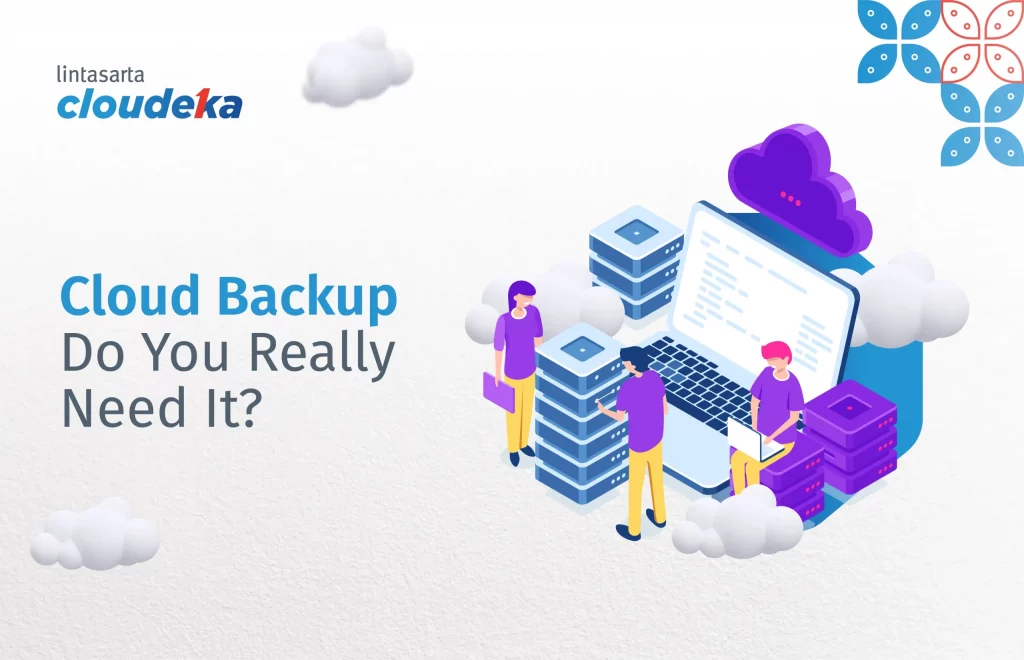How safe is your data? Data, regardless of the size of your company, will be generated and managed for the sake of company sustainability. Up until now, various kind of data is stored electronically such as on Cloud Backup.
Just like in the olden days, files or data (printed) can be gone in a blink of an eye due to natural disasters such as fires, earthquakes, floods, etc. Electronic data can also be damaged or lost due to hardware failure or cyberattacks such as hacking or malware.
In contrast to physical infrastructure that can be insured, the damaged data of a company cannot be replaced effortlessly. Data loss can generate many disadvantages such as loss of sales or revenue, failure to fulfill contracts, customer dissatisfaction, and various other losses. Therefore, data backup is a must to ensure the continuity of the company.
In a nutshell, data backup can be implemented at the same place as local backup, or even at a different place such as offsite or remote backup.
The main advantage of offsite backup is to reduce the risk of data loss because of physical disaster. If this happens, the data that is lost may not only be the main data, but also the backup data that is stored in the same building. When the backup data is stored far away from the main (disaster) location, it will not damage the backup data, and businesses can perform recovery.
YOU MIGHT ALSO LIKE:
- What is Artificial Intelligence Technology?
- The Role of Data Science for Business World
- 4 Best CMS for Website
The offsite backup can be transferred to another location owned by the company. But nowadays, a company can harness the benefit of Cloud Backup.
Cloud Backup for On-premises Data
Cloud Backup service transfers and keeps data periodically to a Cloud service provider. The benefits are twofold: Secured, due to saving in a different place with on-premises installation; and cost-efficient, a company can save more budget for resources such as on-site place, devices, and staff.
Cloud to Cloud Backup
As many businesses rely on Cloud services, not only for backup but also for computing resources and main data storage. A Cloud service provider definitively owns their backup system to keep data. However, this does not mean Cloud users no longer require a backup system.
Various threats to data security are not only coming from natural disasters, but also from cyber threats such as malware and ransomware that can be harmful and block data access. If hackers managed to compromise your Cloud security defense, it is a must for you to have a backup to restore business operations. This can be done by implementing Cloud to Cloud Backup.
Cloud to Cloud Backup, generally speaking, can generate similar benefits such as backing up data from an on-premises installation. The difference is that the data that is backed up also comes from the Cloud service. With a backup service like this, virtual machines and other data stored in the Cloud can be recovered quickly in the event of a cyber-attack or other problem that threatens the integrity of the data.
If your company needs a Cloud Backup service, Deka Vault service is available from Lintasarta Cloudeka. Deka Vault is designed for data backup as well as disaster recovery. This service can be used for on-premises installations such as in the Private Cloud or for securing data stored by the Lintasarta Cloudeka service itself.
For further deets about Deka Vault from Lintasarta Cloudeka, please click here to contact us!
